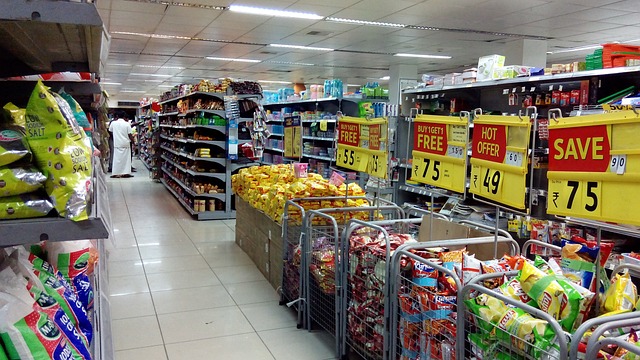Exploring the Value of Garage Sales in Trondheim
Garage sales in Trondheim present an opportunity for residents to purchase quality items cheaper, allowing for significant saving compared to regular retail outlets. Many individuals may be unaware of the variety available at these sales, which can range from household goods to unique collectibles. Engaging in garage sales not only supports the community but also promotes sustainable shopping habits by encouraging the reuse of items. Regular visits to these sales can lead to even more saving over time, making it a worthwhile endeavor for budget-conscious shoppers.

Discovering Garage Sales in Trondheim and Their Hidden Treasures
Finding garage sales in Trondheim requires some local knowledge and networking. Unlike countries where garage sales are weekly occurrences, Trondheim’s sales tend to be seasonal events, with peak activity during spring and summer months when weather permits outdoor setups. Residents typically advertise their sales through community bulletin boards at local supermarkets, Facebook groups like “Loppemarked Trondheim” or “Kjøp og Salg Trondheim,” and the popular Norwegian classified site Finn.no.
The treasures awaiting discovery at Trondheim’s garage sales reflect the city’s unique character. Visitors might find vintage Scandinavian furniture pieces, Norwegian handicrafts, outdoors equipment suited for the region’s activities, and international items brought by the city’s substantial student and expatriate population. University dormitory areas like Moholt and Steinan often host end-of-term sales where departing international students sell household goods at significant discounts, making these neighborhoods particularly fertile hunting grounds.
The Benefits of Shopping at Garage Sales Versus Regular Stores
Garage sales in Trondheim offer several advantages over conventional retail shopping experiences. The most obvious benefit is cost savings, with items typically priced at 10-30% of their original retail value. This affordability becomes particularly significant in Norway, where consumer goods prices rank among Europe’s highest. For Trondheim’s substantial student population, garage sales provide an economical way to furnish temporary accommodations.
Beyond price advantages, garage sales offer unique items that aren’t available in standardized retail environments. Vintage Norwegian artifacts, handcrafted items, and discontinued products often appear at these sales. Additionally, garage sales facilitate direct negotiation between buyer and seller—a contrast to Norway’s predominantly fixed-price retail culture. This direct exchange creates opportunities for price flexibility and bundled purchases that benefit both parties.
The social dimension of garage sales shouldn’t be underestimated either. Unlike the often-impersonal experience of retail stores, these community events foster connections between neighbors and strengthen local community ties. For international residents in Trondheim, garage sales provide valuable opportunities to interact with locals outside typical tourist or academic environments.
How Garage Sales Can Contribute to Sustainable Consumer Practices
Trondheim, like many Norwegian cities, has embraced sustainability initiatives, and garage sales align perfectly with these environmental goals. Each item purchased secondhand potentially prevents another item from entering landfills while reducing demand for new production. This aligns with Norway’s commitment to circular economy principles, where products are reused and repurposed rather than discarded.
The environmental impact is substantial—extending the lifespan of consumer goods through resale significantly reduces carbon footprints. For example, buying secondhand furniture can reduce associated carbon emissions by up to 80% compared to purchasing new items. In Trondheim’s climate-conscious community, this environmental benefit adds meaningful value to garage sale purchases.
The sustainability aspect extends beyond environmental considerations to include economic sustainability. For sellers, garage sales provide a method to recoup some investment in underused items. For buyers, particularly those in temporary situations like students or short-term residents, garage sales offer affordable access to items needed temporarily without the full financial and environmental cost of buying new.
The Cultural and Economic Impact of Garage Sales in Trondheim
Garage sales in Trondheim reflect the evolving Norwegian relationship with consumption and ownership. Traditionally, Norway’s consumer culture emphasized quality purchases intended for long-term use, with secondhand markets being relatively limited compared to other European countries. However, recent years have seen a cultural shift toward more circular consumption patterns, with garage sales gaining legitimacy as both practical and environmentally responsible.
From an economic perspective, garage sales create an informal but important secondary market that complements Trondheim’s retail economy. They facilitate wealth redistribution within communities and provide supplementary income for sellers. For Trondheim’s substantial student population, this informal economy is particularly valuable, allowing for the recycling of household goods as international students arrive and depart.
Organizing and Participating in Garage Sales in Trondheim
For residents interested in hosting garage sales in Trondheim, understanding local regulations is essential. While Norway doesn’t heavily regulate casual sales of personal items, certain considerations apply. Sales should remain occasional rather than regular commercial activities to avoid business registration requirements. Additionally, public spaces require permits, so most sales occur on private property.
Seasonal timing significantly impacts success, with late spring (May-June) and early autumn (August-September) offering optimal weather conditions while avoiding vacation periods when many residents leave the city. Advertising effectively through both digital platforms like Facebook groups and traditional methods like neighborhood posters ensures good attendance.
For shoppers, arriving early yields the best selection, while coming later might reveal better bargains as sellers become motivated to clear remaining inventory. Negotiation is acceptable, though typically more restrained than in some cultures—offering 10-20% below asking price is generally considered reasonable.
Prices, rates, or cost estimates mentioned in this article are based on the latest available information but may change over time. Independent research is advised before making financial decisions.
Conclusion
Garage sales in Trondheim offer multiple forms of value that extend beyond simple commercial transactions. They provide economic benefits through affordable access to goods, environmental advantages through product reuse, and social value through community interactions. As Trondheim continues its evolution toward more sustainable consumption patterns, these informal marketplaces will likely play an increasingly important role in the city’s circular economy, offering both practical solutions for residents and unique cultural experiences for visitors and newcomers alike.




